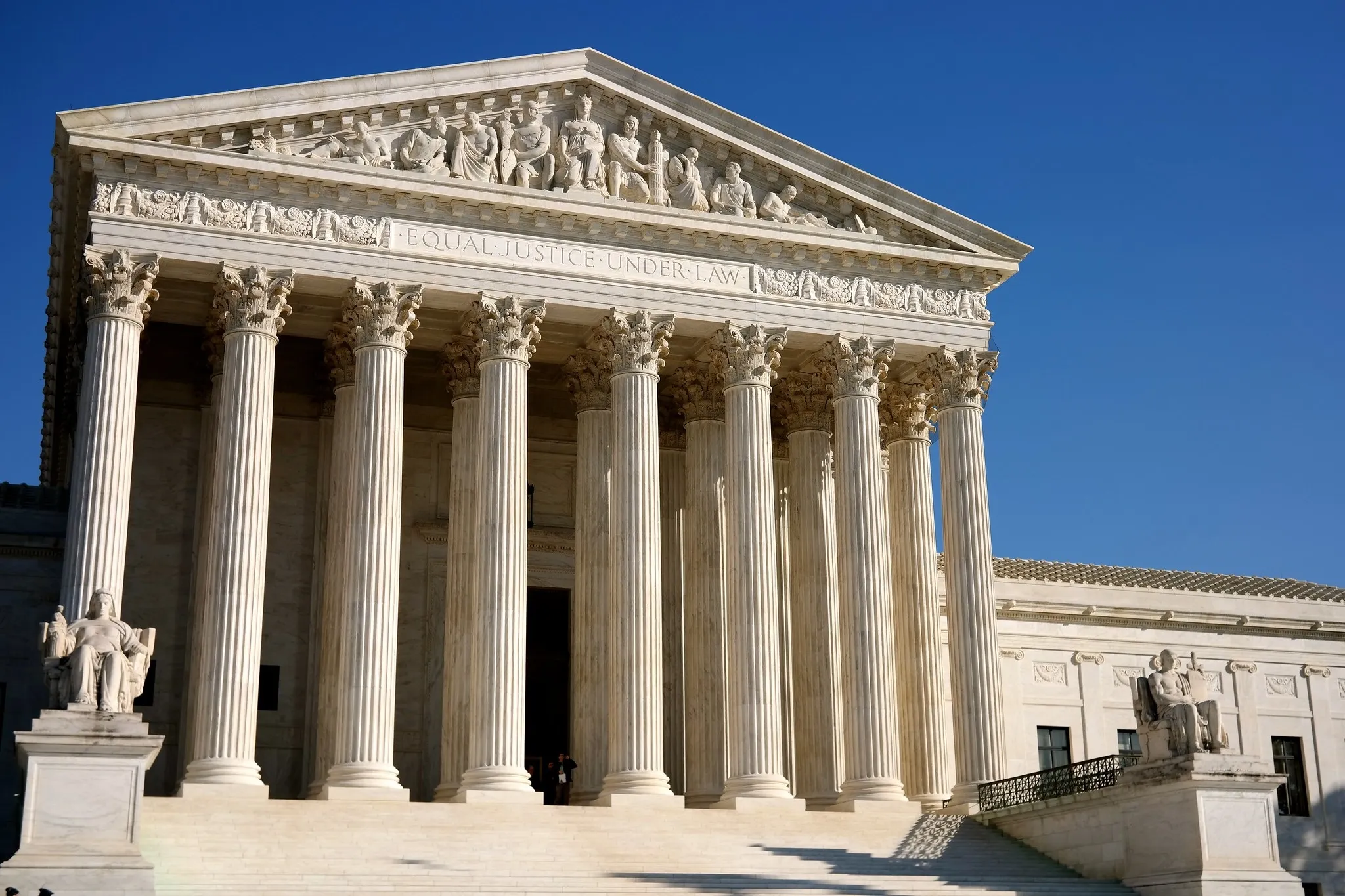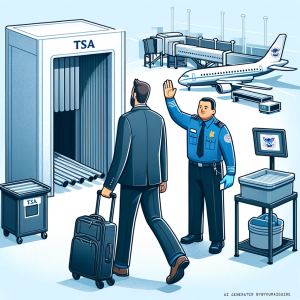CASE PREVIEW
Supreme Court to consider whether Oregon man can sue FBI over No Fly List

on Jan 3, 2024 at 11:14 am

In the wake of the Sept. 11, 2001, attacks, the U.S. government created a “No Fly List” – a list of people whom the government believes pose enough of a risk to national security that they should not be allowed to board a commercial flight through U.S. airspace. On Jan. 8, in FBI v. Fikre, the justices will consider whether a lawsuit brought by an Oregon man who was stranded overseas for more than four years after he was placed on the No Fly List can go forward when the FBI has taken him off the list and has promised not to put him back on the list “based on the currently available information.”
The plaintiff in the case, Yonas Fikre, learned in 2010 that he had been placed on the No Fly List. FBI agents interrogated Fikre, a U.S. citizen of Eritrean descent who was living in Sudan at the time, about his contacts with a mosque in Oregon, and they suggested that if he agreed to become an FBI informant, he could be removed from the list, which would allow him to return to the United States.
Fikre declined the FBI’s offer. A few months later, during a trip to the United Arab Emirates, Fikre was arrested, imprisoned, and tortured. Officials there told Fikre that his detention and interrogation came at the FBI’s request.
After his release from detention in the UAE, Fikre flew to Sweden and applied for asylum there. The Swedish government eventually denied his request and chartered a private jet to return him to the United States.
Fikre went to federal court in 2013, alleging that the FBI violated his constitutional rights by placing him on the No Fly List. In 2019, a federal district judge dismissed his claims as moot – that is, no longer a live controversy – because the government had removed Fikre from the list and promised not to put him on it again “based on the currently available information.”
But the U.S. Court of Appeals for the 9th Circuit reinstated Fikre’s claims. It explained that when a defendant voluntarily stops the conduct that prompted a lawsuit, the case is not moot unless the defendant can meet the “heavy burden” “of making it ‘absolutely clear the allegedly wrongful behavior could not reasonably be expected to recur.’”
In this case, the court of appeals concluded, the FBI’s assurances do not meet that standard. Specifically, the 9th Circuit noted, “instead of renouncing the government’s original decision” to place Fikre on the No Fly List, the FBI “doubles down on it,” defending the decision to put him on the list and leaving open the prospect that he could be placed on the list again in the future.

The FBI uses its No Fly List to bar certain passengers from boarding flights in U.S. airspace. (Tori Madden)
The FBI came to the Supreme Court, which agreed in September to weigh in.
Representing the FBI, U.S. Solicitor General Elizabeth Prelogar urges the justices to reverse the appeals court’s ruling. She argues that the 9th Circuit’s primary rationale for reinstating Fikre’s claims “incorrectly confuses mootness” with the substance of his claims. However, she stresses, to show that Fikre’s case is moot, the government is not required to admit that it was wrong to put him on the list in the first place.
Instead, she contends, the only question that the 9th Circuit should have asked was whether it is reasonably likely that Fikre would be placed on the No Fly List again in the future. And the answer to that question, she writes, is no. She points to the declaration that the government submitted indicating that Fikre will not be placed on the list in the future based on the information that the government currently has available to it – which, she says, includes “all information, including any allegedly improper reasons that” Fikre “thinks the government might have had for initially placing him on the No Fly List.” To place Fikre on the list again in the future, Prelogar explains, the government would have to rely at least in part on new information, which would not be a “recurrence” of the conduct that Fikre was challenging when he filed this lawsuit.
And if the 9th Circuit’s ruling is allowed to stand, she continues, it could prompt others who were once on the No Fly List to go to court to seek rulings about whether they were correctly placed on the list. But those rulings, Prelogar asserts, would – in violation of the Constitution – simply provide advice but not have binding force. Such rulings would be “particularly problematic” in cases like this one, involving issues of national security, Prelogar adds, because they could “needlessly generate disputes about the use of” sensitive information and “distract agencies from carrying out their national-security and counter-terrorism duties.”
Fikre counters that the 9th Circuit applied the right test: His case is not moot unless the FBI makes it absolutely clear that the conduct that prompted the lawsuit cannot reasonably be expected to happen again. To determine whether a defendant has met this high bar, Fikre continues, the Supreme Court has primarily considered two factors: whether there are barriers to ensure that the challenged conduct does not happen again; and whether the defendant has disavowed the conduct that led to the lawsuit. Those factors, Fikre says, “are considered in combination: A strong barrier to future recurrence can compensate for a defendant’s failure to repudiate past conduct, and vice versa.”
But in this case, Fikre argues, the FBI has not shown that either factor exists. Although the government submitted a declaration indicating that Fikre will not be returned to the list based on “currently available information,” Fikre says, nothing about that declaration actually assures Fikre that the government will not change its mind and place him on the list again.
The FBI also did not disavow its decision to place Fikre on the No Fly List in the first place, Fikre continues. To the contrary, Fikre asserts, “the government did the opposite of repudiation, asserting that Fikre’s initial listing comported ‘with applicable policies and procedures’ and insisting that its No Fly List procedures are constitutional.”
Fikre rejects any suggestion that national security concerns should weigh in favor of declaring Fikre’s case moot. Federal courts, he writes, “are fully capable of handling sensitive information that, on a case-by-case basis, might need to be evaluated in a No Fly List” dispute. But in any event, Fikre concludes, the broad discretion and lack of transparency that the government enjoys in the national security arena should militate in favor of more caution by courts, rather than less: “When all power lies with the government,” Fikre emphasizes, “and exercise of that power is unreviewable, nothing precludes the government from returning to its old ways.”
This article was originally published at Howe on the Court.


